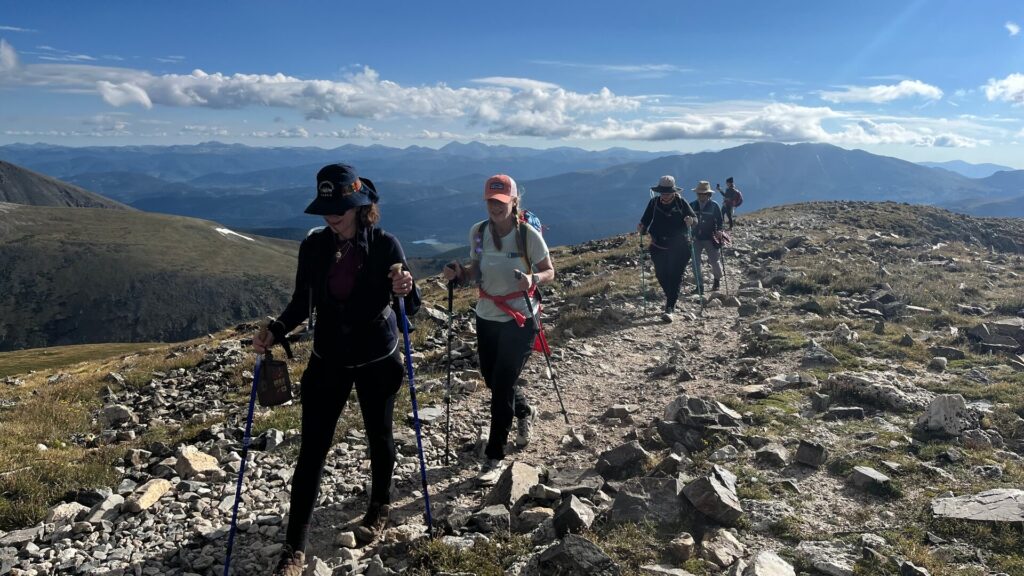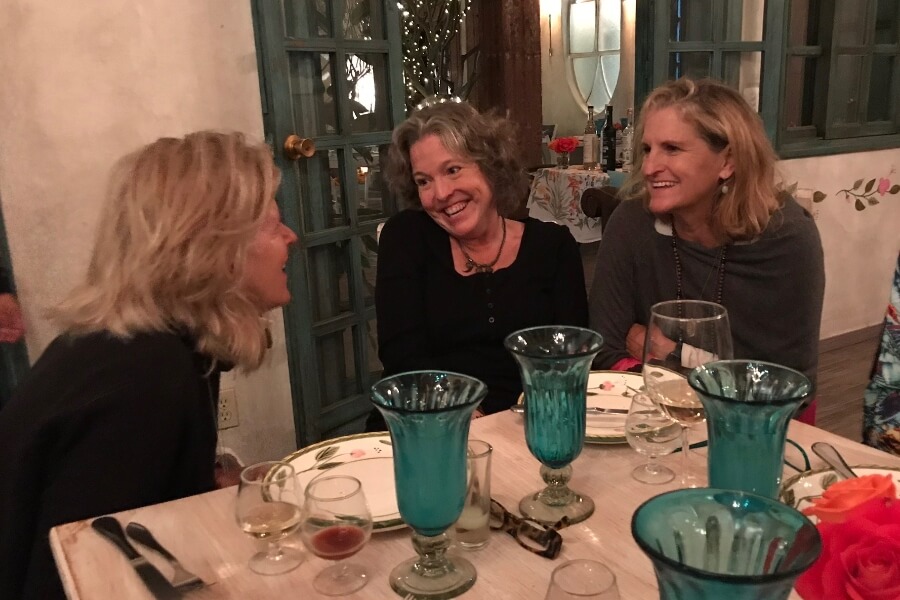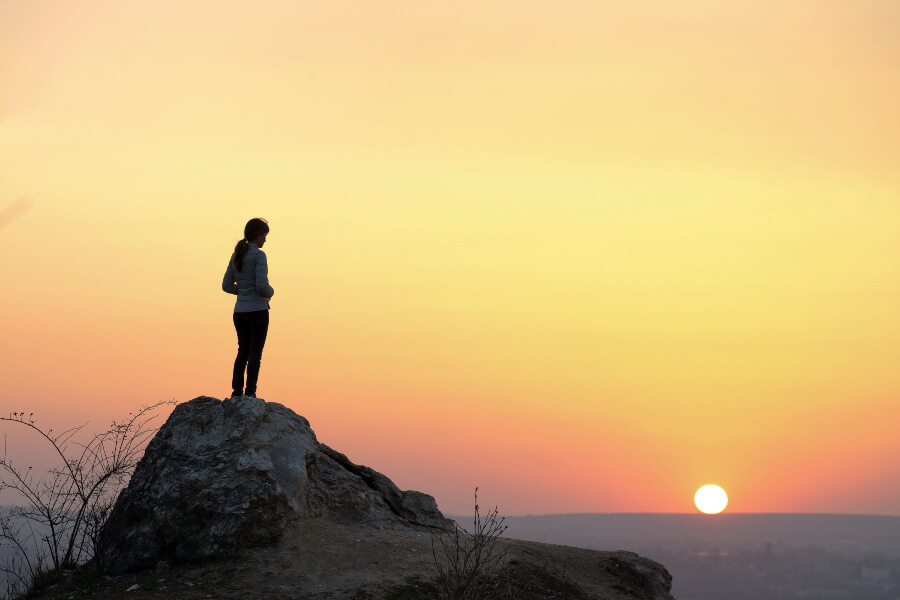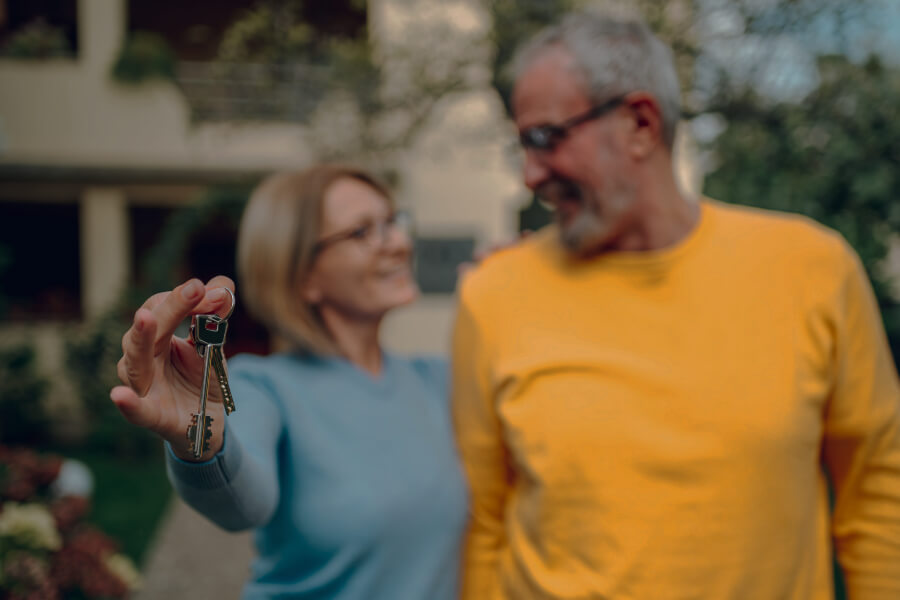Editor’s Note: This essay on learning to meditate to control stress has been a popular read, and we imagine right now it will help even more of you.
Anxiety. It’s become a regular part of my everyday life. High blood pressure seems to be the new normal—which is why I’m now sitting in this room, getting in touch with my sitz bones, trying out meditation to tame my stress.
I imagine a thread pulling my spine up toward the ceiling while skeptically obeying instructions from the class leader, Yael: jaw relaxed, mouth slightly ajar, eyes closed or slightly open. Seven months pregnant, she is still able to sit on her knees as she guides us into our “practice.”
I’m older than most of the other sanctuary seekers and don’t sit cross-legged on a floor cushion. “Your chair is ready,” the receptionist chirpily informs me each time, publicly emphasizing my arthritic knees. She knows my name and is eternally cheerful. Her happiness drug is the organic caffeine-free tea that she encourages everyone to drink, included in our monthly membership fees. She moves like a dancer and teaches yoga elsewhere when she isn’t announcing, “The 5:30 breath class is about to begin.”
Goodbye to Technology
Dutifully we follow her past the sign that says, “No technology beyond this point.” I’ve left my phone in a cubby at the front desk, but almost everyone else hangs personal belongings on a hook near the exit door. Cynical urbanite that I am, I bring my purse inside with me, worried it will otherwise disappear, worried that unless I trust the people in this sacred space with my unattended wallet, I may never experience enlightenment. I need to let go of my distrust.
Anxiety has driven me here. My world has a lot to fear: job insecurity, gun violence, terrorism. My personal life is also filled with worries: adjusting to empty-nesting, caring for aging parents, uncertain financial planning for retirement. But my therapist believes my increased anxiety is connected to a string of career accomplishments—fear of success. I get stomach aches before moderating panel discussions at professional conferences. Walking down the street on a sunny day, I imagine being hit by that bicyclist running a light and picture my tragic funeral. In tunnels, I am convinced I’ll never make it to the other side. Yet I am able to transform myself into a self-assured speaker to lead panel presentations like an actor overcoming stage fright.
A friend gives me essential oils guaranteed to lull me into sleep. The lavender scent on my wrists keeps me awake.
Read More: 3 Stellar Meditation Apps That Are Sure to Lift Your Mood
Panic in Paris
Paris is my breaking point. I set out to visit the Musee d’Orsay, but I panic, unable to decipher which Metro line I should take—even though I’ve been taking subways since childhood. I walk four miles toward my favorite boulangerie, then continue another six blocks to impressionist bliss. In the end, I find myself on a bench outside my favorite gallery, unable to quell my anxiety.
I upload a meditation app on my iPhone called “Headspace,” counting on a digital voice to pull me out of panic mode. How odd to have an app guiding me through an ancient practice. In the Old Testament, the Hebrew word for meditation is hāgâ, which also means to sigh or murmur. It’s not surprising that as a Jew with a lineage of generations who fled persecution, my meditation practice is punctuated by sighs.
I am one of 25 million Americans engaging in some form of meditation. A cover story in Time claimed “mindfulness meditation has diffused into the largest sectors of modern society,” helping powerful CEOs, Pentagon chiefs, parents, students, grandparents. “It’s the new rage in Silicon Valley,” according to Wired. Even the peripatetic Don Draper found solace in meditation in the final episode of Mad Men. Alleged benefits include reducing chronic pain, improving sex, eliminating insomnia, securing new jobs, and tapping into creativity.
Practicing Meditation for Stress
Meditation has been traced back to Hindu traditions in 1500 BCE. Here in the modern world I can “book my cushion” online at MNDFL, a studio that “exists to enable humans to feel good.” As a writing professor, I worry whether a brand without vowels can really help me.
Meditation classes are always referred to as “practice.” I’ve practiced my forehand warming up for tennis, practiced quotes and essays I prepare to read aloud to the writing workshops I teach. I’ve told my students that in order to become better writers, they must practice their craft on a daily basis, like a musician or marathon runner. Otherwise calluses get soft and muscle memory fades. Will I always practice meditation? Will I someday reach enlightenment, or at the least, some kind of mastery?
“If you’re afraid of falling asleep, keep your eyes open at a 45-degree angle,” Yael’s lilting voice entices a room full of two dozen disciples. Another teacher once claimed this eyes-sort-of-open technique enables you to meditate while simultaneously engaged in a conversation. I wish I’d been aware of this trick while my mother was still alive.
In the Dark
I prefer total darkness, eyes shut. “Don’t think about what happened today,” Yael intones, “don’t make any judgments. If you feel distracted, the mind is doing its work, but that’s okay. Come back to the breath, to each moment.”
She is my favorite teacher, the co-founder of the Jewish Meditation Center. “I’ve been thinking about my anxiety lately, unable to sleep,” she announces as class starts, pointing to her pregnant belly. She is perfect: an anxious Jewish meditation expert.
She loves to start or end our practice with a poem. Today it’s Marge Piercy’s “The Seven of Pentacles.” As Yael enters her eighth month, she no longer kneels but sits on a chair, like me. “Soften your belly,” she says. “Focus on your breath. If you feel crappy, that’s okay. Invite in the preciousness of this moment.”
Distracted, I want to tell Yael not to feel anxious about having a baby. I was raised by a poverty-stricken mother who’d spent her childhood in an orphanage—a traumatized, anxiety-riddled woman unable to give me the nurturing I needed. In spite of apprehensions about my ability to be a good mother, I forged a close bond with my daughter, who is now 22. But I hardly speak to Yael.
Lines For Life
I close my eyes, and listen to her recite more of the poem:
“Connections are made slowly. Sometimes they grow underground.”
I am never sure if I’m meditating or if Yael’s calming voice is hypnotizing me.
“Weave real connections, create real nodes, build real houses/Live a life you can endure: Make love that is loving,” Yael continues.
I am awake and aware, yet somewhere else. I acknowledge any thoughts that travel through my mind, letting them pass by, focusing on my breath.
“Live as if you liked yourself, and it may happen. Reach out, keep reaching out, keep bringing in.”
Toward the end of practice, Yael encourages us to search for an “intention,” or to focus our thoughts on someone we know who needs our help. “Use this intention to radiate out all week.”
Feeling Centered
I wish I could, yet I know it won’t keep me from the occasional fight with my husband, from work pressure and deadlines, from worries about our global landscape, from irrational fears that I’ll get stuck each time I ride an elevator. But when Yael rings a gong she keeps nearby, alerting us to slowly emerge from wherever we’ve mindfully journeyed, I feel centered and relaxed—even momentarily unafraid.
“Every gardener knows that after the digging, after the planting/After the long season of tending and growth, the harvest comes.”
I am a city girl, purchasing my harvests at urban greenmarkets. A part of me still resists buying into the meditation center’s new-agey posters with inspirational quotes: explore and ride the energy of our emotions so we are productive, joyful and free… encourage loving kindness and ways to become more compassionate and empathetic toward one another.
Read More: 11 Ways to Get Through Coronavirus
Back to Real Life
It feels hokey, like a sentimental greeting card, yet I can’t help but wonder if everyone would be better off if we’d leave the daily chaos and stress of modern life and spend twenty minutes a day focusing our breath. I begin to miss “practice” when I’m away, and I look forward to what seems like a bizarre experience: sitting in a room full of barefoot, eyes-closed, or eyes-half-closed strangers. Bankers, lawyers, and artists in crew cuts, pony tails, and man buns, in yoga clothes, power suits, and fashionable dresses. I’m always amazed at how many harried Type A professionals, running here from hyperkinetic work days, have booked their cushions next to my chair.
“Thanks for coming together for practice,” Yael dismisses us in the kindest way.
No one seems groggy, unlike after an afternoon nap. Quietly we leave the meditation room, extending a few shy smiles when our eyes meet but no words, depositing our tea cups in the sink, and slipping on our shoes. Everyone’s coats and purses and wallets are still on hooks, unstolen, safe. One day I should try that. Maybe next time. People hold the door open for others. It’s a bit of a shock to be thrust back onto gridlocked city sidewalks where the un-meditated are rushing home as if everyone is on steroids. I move slowly through the crowd, letting them pass me by. I don’t care if I miss the light. My phone is still on silent, and, for a little while, I am too.
***
Candy Schulman is an award-winning writer whose essays, articles, and humor pieces have appeared in The New York Times, The Washington Post, Salon, Next Avenue, New York Magazine, Glamour, Rumpus Funny Women, Parenting, and elsewhere including anthologies.
A version of this article was originally published in October 2017.





















0 Comments